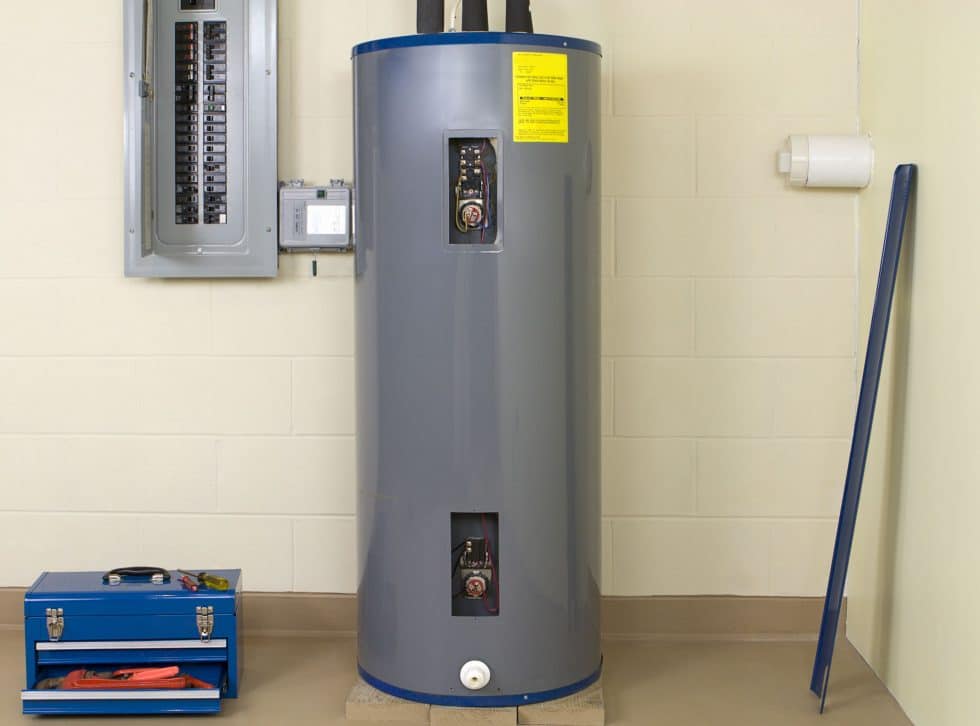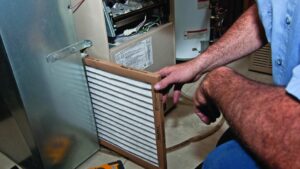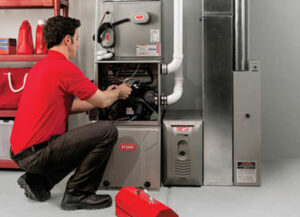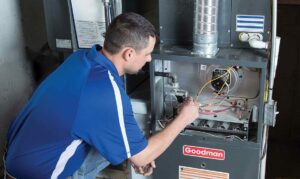Furnace vs Water Heater
Many people do not know the difference between a furnace and a water heater. Below we discuss furnace vs water heater.
Whenever the temperatures cool from year to year, you are not concerned about the heating system type. You concern yourself about setting the thermostat to heat your place without disturbing yourself.
Suppose you want to decide which heating system type to use, whether a water heater or a furnace; we have provided you with some critical differences between the two. We have also noted how each of them operates to produce heat.
A plumber is essential. You might have experienced something that you wish you could fix, but you don’t know how to do so. Find out how you can become a plumber.
Quick Summary of Furnaces and Water Heaters:
Water heaters only provide your home with hot water and do not heat your place. On the other hand, Furnaces heat the air and distribute the heated air throughout your house.
Water Heater
Water heaters only provide your home with hot water and do not heat your residence. On the other hand, furnaces ensure your home has sufficient heat when the outside air gets cold.
You are well aware of water heaters providing the home with a hot water supply throughout for usage, such as taking a warm shower or washing hands or operating the dishwasher.
Water heaters, as you well know, don’t heat your place. Households with water heaters can also find other alternatives to heat their place, including furnaces and heat pumps. There are two kinds of water heaters present in homes: tank-type water heaters and tankless water heaters.
Interested in learning how a furnace humidifier can benefit your home?
Tank-type water heaters
Before we go to the main differences, or in other words, furnace vs water heater, we need to be aware of the types of water heaters present. Standard tank-type water heaters are the most common water heating system in homes today.
Water heaters heat the water and store it in a tank holding 80 gallons. Whenever you shower or wash your hands, the warm water flows from the water heater tank where heating has been continuous to the plumbing pipes ready for use.
As the warm water flows away from your tank, cold water refills back into the heater’s tank, and the process repeats itself. This type of system is efficient and sufficient in supplying hot water upon demand for most households. However, a more prominent family may use heater water quicker than the tank can produce. When this happens, water demand is often coming from two different places simultaneously.
Tankless type of water heaters
As the word suggests, tankless water heaters do not store any warm water and only heat the water present upon demand. On the other hand, cold water runs through tankless system type and, in turn, gets heated along its way.
Tankless water heaters tend to offer more energy-efficient services than tank-type heaters. They are also in an excellent position to effectively meet the family’s demands. The tankless water heaters can have limitations in the water level they can provide simultaneously.
How Does the Water Heater Function?
As the cold water enters your tank, this prompts heating to produce hot water. Your gas burner ignites to heat water with a natural or propane gas water heater. Instead of an ignitor, electrical heaters use an element to heat the water. This cycle continues so that hot water is readily available at the time of need.
On the other hand, tankless heaters provide warm water directly on demand. Instead of the water remaining in the tank, heating takes place rapidly in the time of need.
Water heaters deliver warm water to the plumbing system, including the sinks, dishwashers, washing machines, and showers. They don’t heat your homestead.
How Does the Furnace Function?
Modern-era furnaces run off electricity or gas or induction. They are safer and much more contained as opposed to the older versions. Small furnaces are usually electrical and often attached to water heaters and boilers to generate the required energy to scald faucet sinks and take hot or warm showers.
A forced-air furnace uses propane or gas to ignite electric ignition or the pilot light switch. Turning up or increasing the temperature through the home’s thermostat ensures that the burner fires up, prompting heating at the heat exchanger.
A blower, in other instances, forces warm air in the ducts to be distributed throughout your home. As the warm air cools, the air returns suck the cooler air so that burner can reheat the air. The cycle continues so that your home is continuously comfortable.
Learn how to find the proper humidity for your home.
Furnace Vs Water Heater, Which One is Better?
Water heaters heat water, and furnaces heat the air and distribute it throughout your home. You require a water heater and a heating system (if you live in a cold climate).
Regardless of the heating system type ( furnace vs water heater ), it is crucial that you clean and maintains the unit to ensure it functions efficiently and safely.
Most homeowners that want new equipment for heating purposes can conduct internet research to obtain more information on which system type to buy.






